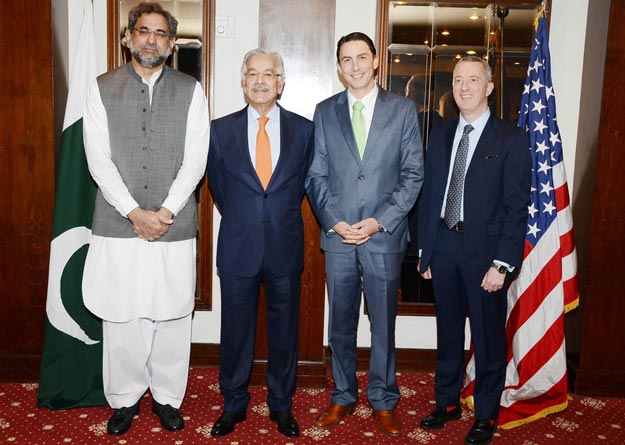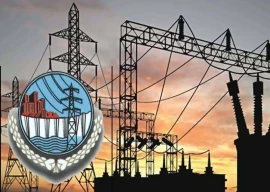
The United States has said that Pakistan should put on hold its gas pipeline project with Iran until sanctions against Tehran are lifted after a final agreement is reached with global powers.
Speaking to journalists here on Wednesday, US State Department’s Special Envoy for Energy Amos Hochstein pointed out that Iran and the global powers, called P5+1 including the US, Britain, France, China, Russia and Germany, were negotiating and moving towards a final deal.
“As long as the agreement is not reached, sanctions are in place and therefore, Pakistan should hold off undertaking any project such as the IP (Iran-Pakistan) pipeline until the removal of sanctions,” Hochstein said.
Raising doubts about Iran’s ability to go for gas exports, he said at present Tehran was a net importer of gas.
Discussing Pakistan’s privatisation programme for energy companies, the envoy said the delegation from Islamabad had informed during a meeting of the US-Pakistan Energy Working Group held under the broader framework of US-Pakistan Strategic Dialogue that three power distribution companies would be privatised next month.
“We are supporting the privatisation of energy companies which is good for attracting investment and improving efficiency,” he said and voiced hope that the government would press on with the sell-off programme keeping in view the previous experience of K-Electric.
Hochstein welcomed Chinese investment of billions of dollars under the Pakistan-China Economic Corridor in energy projects. “We hope projects will move forward and strongly believe Pakistan will achieve energy security.”
Responding to a question about low US investment as compared to China, he said, “We are a different country and not in competition with China. China has its own policy to support the neighbour and we do it in our own way.”
Washington is extending support to Pakistan for enhancing expertise and infrastructure, which is the backbone of energy sector.
The envoy was of the view that Pakistan required a different kind of investment to address the energy problem and said the two sides had also discussed Turkmenistan, Afghanistan, Pakistan and India (Tapi) gas pipeline project and Central Asia-South Asia (Casa-1000) power import project. “We support these projects for regional cooperation.”
Replying to a question about liquefied natural gas (LNG) exports from the US, he clarified that the American government was a regulator and had no role in LNG exports. “Our private sector is independent and Pakistan should buy from it if it wants,” he said, terming LNG a game-changer.
The US is going to become an LNG exporter in 2016 due to reforms in the energy sector. The base price of gas there is $2.60 per million British thermal units (mmbtu).
Hochstein suggested that Pakistan should grow its energy basket by generating power through wind, solar, hydroelectric and gas resources. During the talks, it was agreed that Pakistan would be producing 3,000 megawatts through renewable resources in the next three years.
Speaking about coal-based power plants, the envoy said investment in these plants was not good for the future.
In order to push ahead with the gigantic Diamer-Bhasha dam project, the government is going to conduct different studies including those that focus on environmental impact and financing needs. “An assessment is required to prove that the project is technically sound as donors are coming up with $15-billion financing,” said a USAID official, who was present on the occasion.
According to Hochstein, energy demand in Pakistan is expected to double by 2020, so the country should institute reforms to provide support for the private sector.
In the energy sector assistance programme, the US has contributed over 1,500MW to Pakistan since 2010 by refurbishing hydroelectric and thermal power generation facilities, completing hydel projects and improving the efficiency of transmission and distribution system.
Published in The Express Tribune, April 30th, 2015.
Like Business on Facebook, follow @TribuneBiz on Twitter to stay informed and join in the conversation.









1731570357-0/elon-musk-(1)1731570357-0-270x192.webp)













COMMENTS (7)
Comments are moderated and generally will be posted if they are on-topic and not abusive.
For more information, please see our Comments FAQ